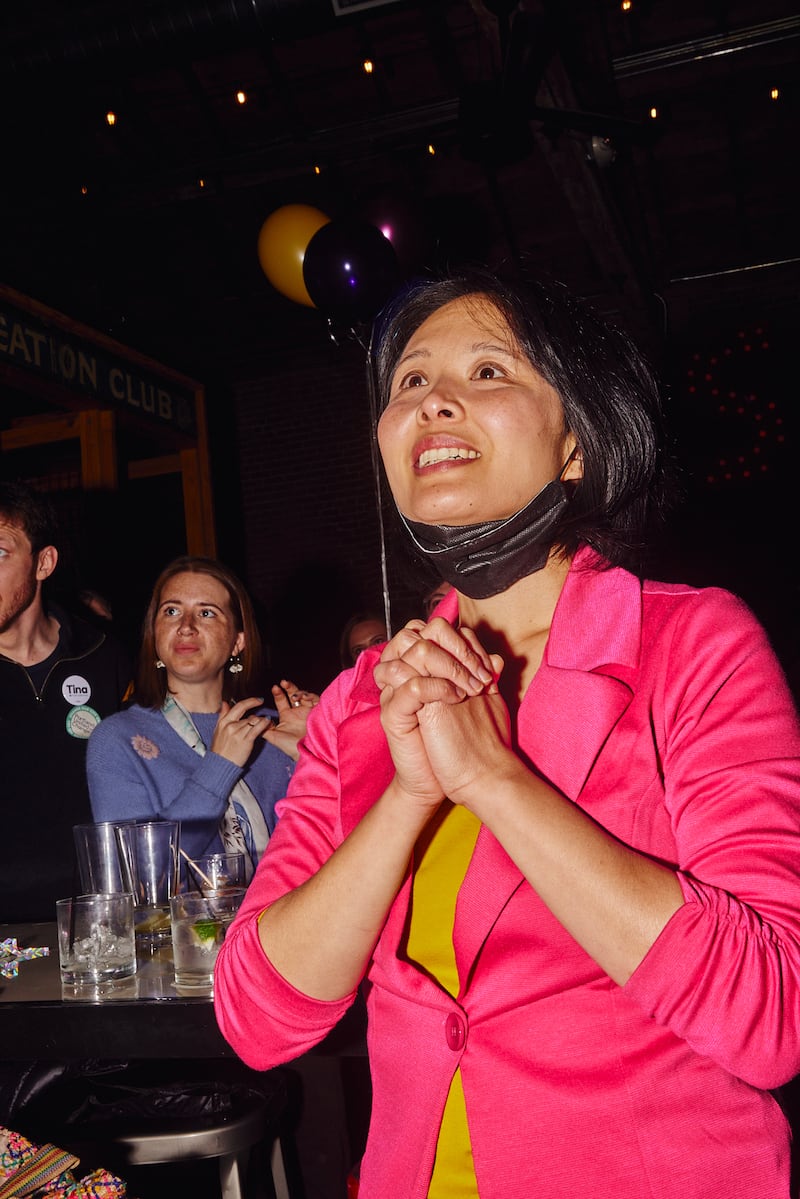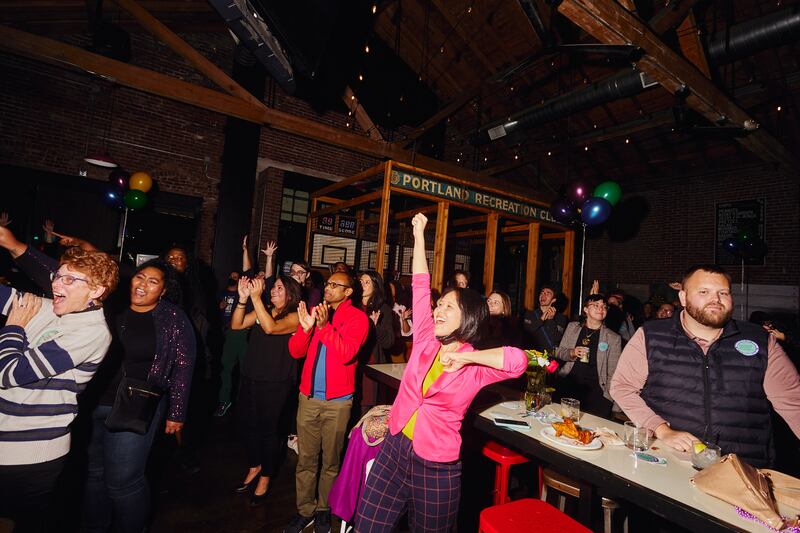The charter reform measure that would fundamentally reshape Portland’s government structure and elections appears poised for victory, according to early election returns Tuesday night.
Early returns on Tuesday night showed Measure 26-228 leading 56% to 44%. Given that early voters often skew conservative, that signals a smooth path to the first change in Portland’s form of government in more than a century.
And it’s a big change. The measure’s proposals include: splitting up the city into four geographic voting districts represented by three city councilors each, the use of ranked-choice voting in elections, and scrapping the commission form of government in exchange for a city administrator who oversees bureaus and the city’s day-to-day functions.
Just before results came in, the mood was buoyant at the Spirit of 77 sports bar on Northeast Martin Luther King Jr. Boulevard, with loud talking, Mardi Gras beads and noisemakers poised at the ready at each table. Damon Motz-Storey, spokesperson for Building Power for Communities of Color, encouraged the 150 or so would-be charter reform revelers to grab some sliders and jojos because it might be a long night before the results would be certain.
“Let’s change Portland’s charter!” Motz-Storey yelled, pumping their fist in the air.
Not 15 minutes later, the group had done just that.

“Tonight, I am deeply moved to share this historic moment with you all and report that early returns show Measure 26-228 passed and will update our city government and elections for the first time since 1913,” said Sol Mora, Portland United for Change’s campaign manager.
Multiple rounds of ecstatic applause interrupted Mora’s speech, along with chants in support of campaign leadership.
“I saw Lizzo last week and I’m pretty sure if she was here she would say, ‘It’s about damn time,’” said Hope Beraka, owner of Think Real Estate and board chair of Business for a Better Portland. “That old system no longer works.”
After speeches, party organizers played the Hall & Oates song “You Make My Dreams (Come True).”
Enshrined in the city’s charter is a mandate that every decade a 20-member Charter Commission convenes to propose changes to Portland’s rules and laws, including how the city is governed. While a year and a half ago, nearly every Portlander could agree that the city needed to get rid of its antiquated commission-style of government in which city commissioners each oversee a portfolio of bureaus, the proposal the Charter Commission sent to the ballot this year was quickly met with strong opposition.
Opponents of the measure argued the measure was a never-before-tested combination of proposals, expensive and volatile.
City Commissioner Mingus Mapps threw an additional wrench into the “yes” campaign when he rolled out an alternative charter reform proposal in August that he planned to put on the spring 2023 ballot. It appears the effort was less effective than he hoped it would be.
The “yes” campaign brought in a million dollars in contributions from progressive organizations, including a number of out-of-state groups. The “no” campaign brought in only a fifth of that.
“At long last, communities of color will have a fair shot at consistent and meaningful representation in Portland City Hall,” said Marcus C. Mundy, executive director of the Coalition of Communities of Color.
Mundy noted that only nine women and two people who live east of 82nd Avenue have ever served on Portland City Council. Only five people of color have had the job.
“And I’ve met all five of them,” Mundy said. “I shouldn’t be able to say that in a city as big as Portland.”


